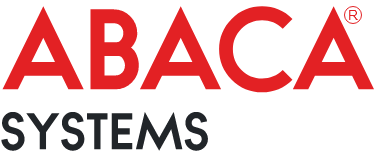Outsourced Product Development – A Practical Guide

Outsourced product development is when a company hires external specialists or another company to design, develop, and produce a product on its behalf. Instead of handling all the tasks in-house, the company delegates certain aspects of the product creation process to a third party. This can include activities such as product design, software development, manufacturing, and quality control.
Why Do Companies Prefer Outsourced Product Development?
Companies often choose outsourced product development for various reasons, such as accessing specialized expertise, reducing costs, and speeding up the development process. By outsourcing, a company can tap into the skills and resources of external partners who may have specific knowledge or experience in the required field.
For example, a technology company might outsource the development of a new software application to a specialized software development firm. This allows the technology company to focus on its core competencies while leveraging the expertise of the external team.
While outsourcing can offer benefits, it also comes with challenges such as effective communication, coordination, and maintaining control over the project. Companies need to carefully select and manage their outsourcing partners to ensure successful collaboration and the delivery of a high-quality product.
The Top Benefits of Outsourced Product Development
Here are some straightforward benefits that make outsourced product development a game-changer for businesses:
Cost Savings: The Bottom Line Advantage
Outsourcing product development can significantly reduce costs for businesses. By tapping into the expertise of external teams, companies can avoid hefty investments in hiring and training specialized in-house staff. Additionally, outsourcing eliminates the need to maintain expensive infrastructure and equipment. This cost-effective approach allows businesses to allocate resources more efficiently, ultimately boosting their bottom line.
Access to Global Talent: A World of Possibilities
One of the primary advantages of outsourcing is gaining access to a vast pool of global talent. Instead of limiting your team to local professionals, outsourcing enables you to collaborate with experts from around the world. This diversity brings in varied perspectives, skills, and experiences, fostering innovation and ensuring that your product development benefits from a rich tapestry of global insights.
Faster Time-to-Market: Speeding Up Success
In the dynamic world of business, speed is often a crucial factor. Outsourcing product development accelerates the time-to-market for new products. External teams, specialized in their fields, are equipped with the necessary skills and tools to streamline the development process. This agility allows businesses to swiftly respond to market demands, stay ahead of competitors, and capitalize on emerging opportunities.
Focus on Core Competencies: Let the Experts Handle It
When you outsource product development, you free up your in-house team to focus on what they do best—your core business functions. Instead of spreading resources thinly across various tasks, you can concentrate on strategic activities that contribute directly to your company’s growth. Outsourcing allows for a more efficient allocation of internal resources, optimizing productivity and enhancing overall business performance.
Risk Mitigation: Sharing the Load
Product development inherently involves risks, ranging from technical challenges to market uncertainties. Outsourcing helps distribute these risks across different parties. External teams, with their specialized knowledge and experience, can navigate challenges more effectively. This shared responsibility ensures that your project is better equipped to handle unexpected hurdles, reducing the overall risk associated with product development.
Scalability: Grow Without Growing Pains
Outsourced product development provides businesses with a scalable solution. As your project evolves or additional resources are needed, external teams can quickly adapt to your requirements. This scalability is particularly advantageous for startups or small businesses looking to expand without the burden of hiring and training a large in-house team. Outsourcing allows for flexibility, ensuring that your development capabilities align seamlessly with your business growth.
Quality Assurance: Rigorous Testing and Excellence
Quality is non-negotiable when it comes to product development. Outsourcing partners often have established processes for rigorous testing and quality assurance. Their specialized knowledge and experience ensure that the final product meets industry standards and customer expectations. With a dedicated focus on quality, outsourcing can elevate your product’s performance, reliability, and overall user satisfaction.
Enhanced Flexibility: Adapting to Market Dynamics
Markets are ever-changing, and businesses must adapt swiftly to stay relevant. Outsourcing provides the flexibility needed to navigate market dynamics effectively. Whether it’s scaling up development efforts during peak times or scaling down during slower periods, outsourcing allows for quick adjustments to align with market fluctuations. This adaptability is crucial for maintaining a competitive edge in dynamic industries.
How to Hire the Right Outsourced Product Development Company?
When searching for outsourced product development companies in the USA, it’s crucial to follow a systematic approach to ensure a successful partnership. Consider the following steps to guide you through the selection process:
1. Define Your Requirements Clearly
Before diving into the search for an outsourcing partner, it’s crucial to have a clear understanding of your project requirements. Clearly define your goals, budget, timeline, and the specific skills needed for the project. This clarity will serve as a foundation for evaluating potential outsourcing candidates.
2. Conduct Thorough Research
Start your search by exploring various outsourcing companies. Look for companies that have a proven track record in your industry and have successfully delivered similar projects. Online reviews, testimonials, and case studies can provide valuable insights into their past performance. Don’t forget to check to see if they adhere to industry standards and best practices.
3. Assess Technical Expertise
Evaluate the technical expertise of the outsourced product development services you are considering. Ensure that they have a skilled and experienced team with the right set of technical skills for your project. Their proficiency in the latest technologies and development methodologies is a key factor in delivering a successful product.
4. Consider Cultural Compatibility
Cultural compatibility is often overlooked, but it plays a significant role in the success of an outsourcing partnership. Choose a company whose work culture aligns with your own. Effective communication and a shared understanding of work processes can minimize misunderstandings and enhance collaboration.
5. Evaluate Communication Channels
Effective communication is the cornerstone of successful outsourcing. Assess the communication channels offered by potential partners. Regular updates, transparent reporting, and a responsive communication system are essential for keeping track of project progress and addressing any issues promptly.
6. Ensure Data Security Measures
Security is a top concern when outsourcing product development. Verify that the outsourcing company has robust data security measures in place. This includes secure transmission of data, confidentiality agreements, and compliance with data protection regulations. Protecting your intellectual property should be a priority.
7. Check Scalability and Flexibility
Opt for an outsourcing partner that can scale with your business needs. A flexible and scalable team can adapt to changing project requirements and accommodate growth. Discuss scalability options with the outsourcing company to ensure they can meet your evolving needs over time.
8. Budget Considerations
While cost is a crucial factor, it’s essential to strike a balance between quality and budget. A significantly lower cost may indicate a compromise in quality. Obtain detailed quotes from potential outsourcing partners, including a breakdown of costs. Consider the value you will receive for the investment rather than focusing solely on the upfront expenses.
9. Legal Agreements and Contracts
Before finalizing any outsourcing arrangement, ensure that all legal aspects are well documented in the contract. Clearly define project deliverables, timelines, payment terms, and any other relevant terms and conditions. Seek legal advice if needed to ensure a comprehensive and fair agreement.
10. Conduct a Pilot Project
If possible, start with a smaller pilot project to assess the outsourcing company’s capabilities firsthand. This allows you to evaluate their work quality, adherence to timelines, and overall compatibility with your project requirements before committing to a larger engagement.
Frequently Asked Questions
- What Is the Typical Duration of an Outsourced Product Development Project?
The duration of an outsourced product development project can vary depending on factors such as project complexity, size, and specific requirements. Generally, it is advisable to discuss timelines with the outsourcing company during the initial stages of project planning to ensure alignment with your business goals.
- How Do Outsourced Product Development Companies Handle Intellectual Property and Data Security?
Most reputable outsourcing companies have robust measures in place, including secure data transmission, confidentiality agreements, and compliance with data protection regulations. It’s important to discuss and clarify these aspects before entering into any outsourcing arrangement.
- How Can Effective Communication Be Ensured During the Outsourced Product Development Process?
Effective communication is crucial for successful outsourcing. Before choosing a partner, assess their communication channels, including regular updates, transparent reporting, and a responsive system. Clear communication helps in tracking project progress, addressing issues promptly, and ensuring a collaborative and efficient development process.
- What Steps Can Be Taken to Mitigate the Risks Associated With Outsourced Product Development?
To mitigate the risks associated with outsourced product development, you must thoroughly assess your choice. Assess their track record, technical expertise, and adherence to industry standards. Additionally, clearly define legal agreements and contracts before committing to a larger engagement.
Final Thought
Choosing the right outsourced product development company is a critical decision that can significantly impact the success of your project. Take the time to carefully evaluate potential partners, communicate openly, and establish a solid foundation for collaboration.
With the right outsourcing company by your side, you can bring your product vision to life with confidence and success. Abacasys is a trusted outsourced product development company known for its proven track record of delivering innovative solutions. With a focus on technical expertise, efficient communication, and scalability, Abacasys offers reliable services to streamline product development for businesses.
